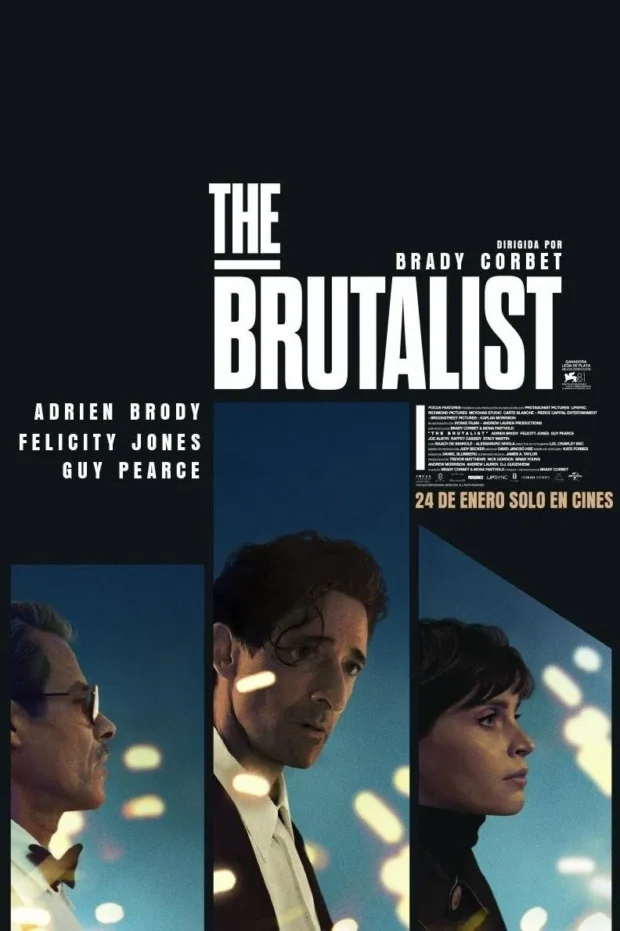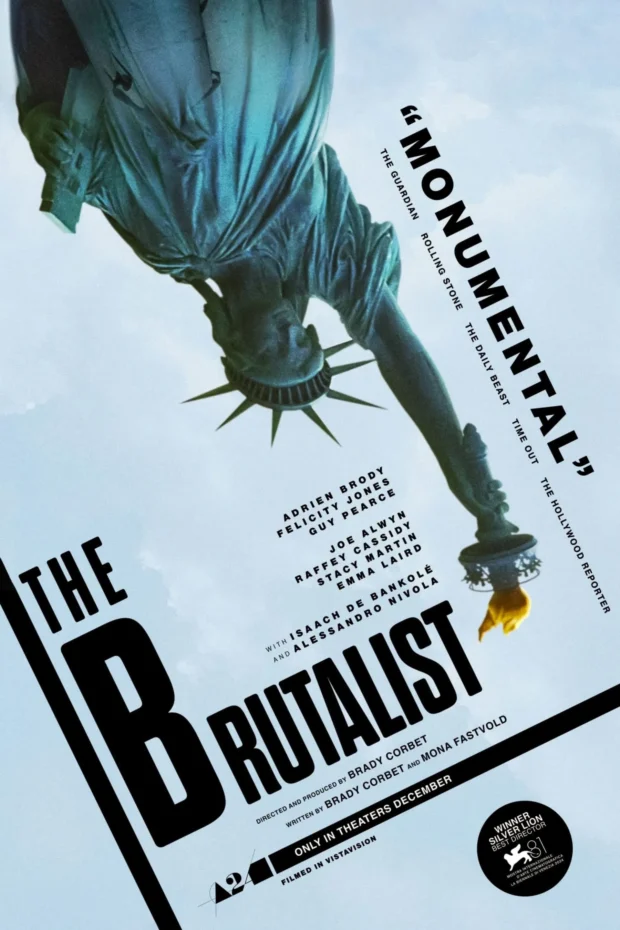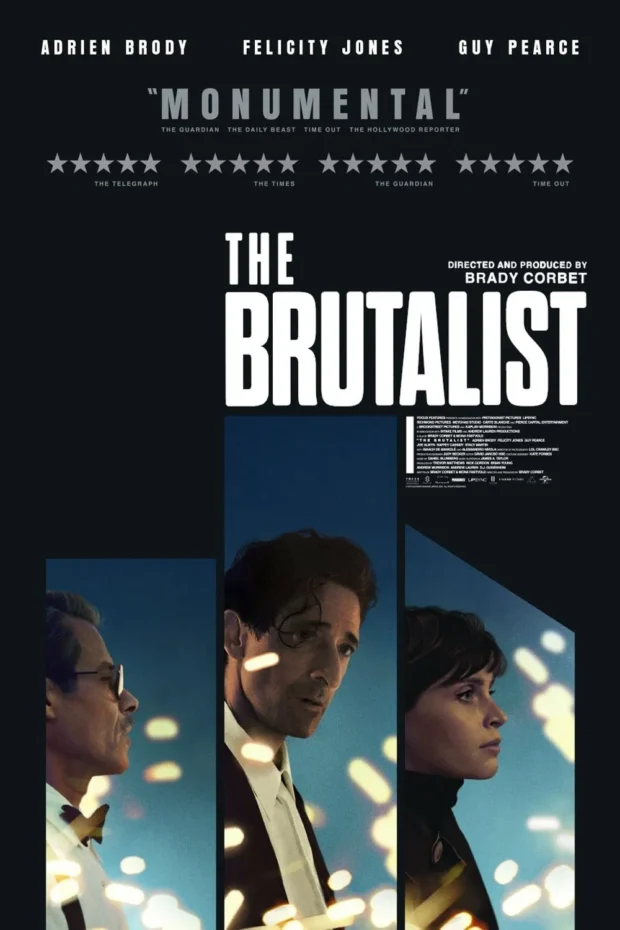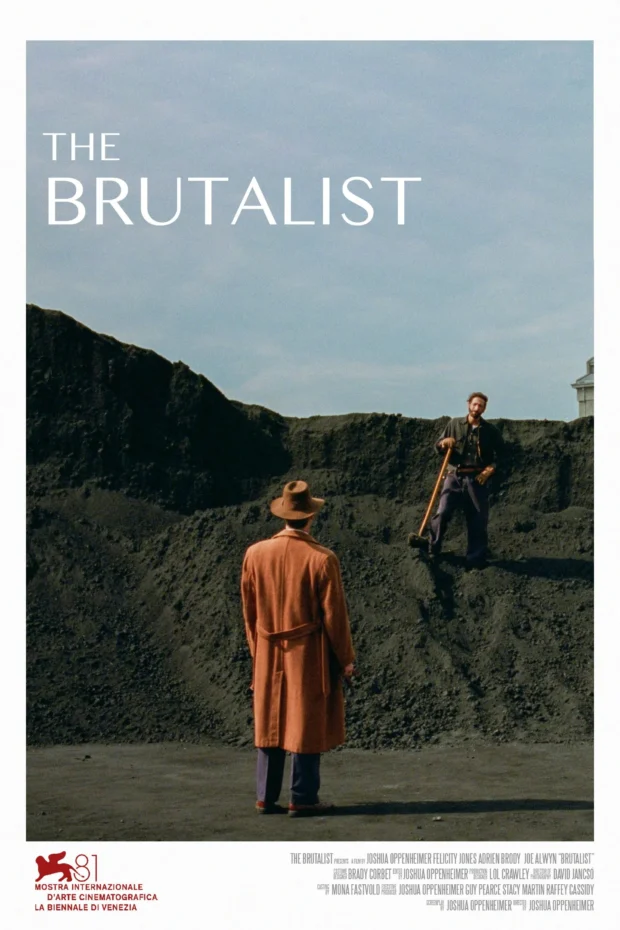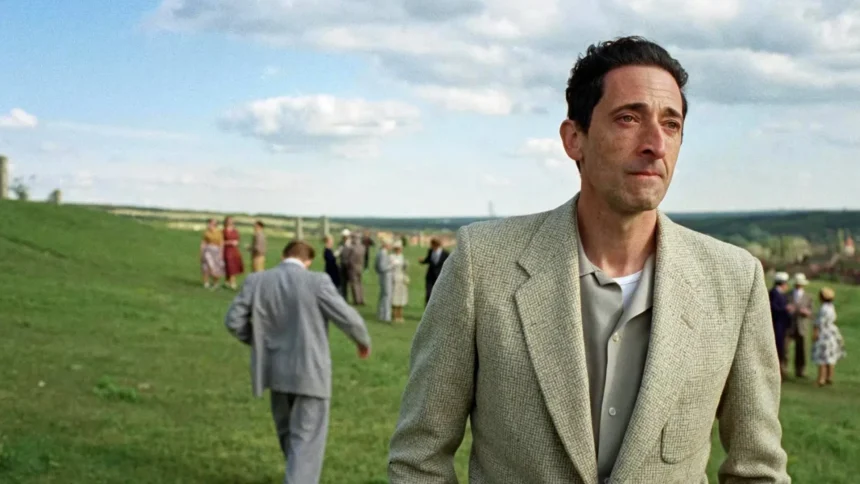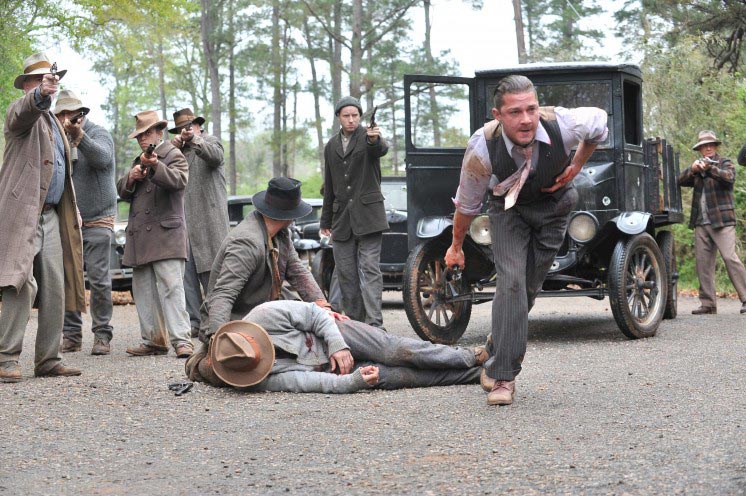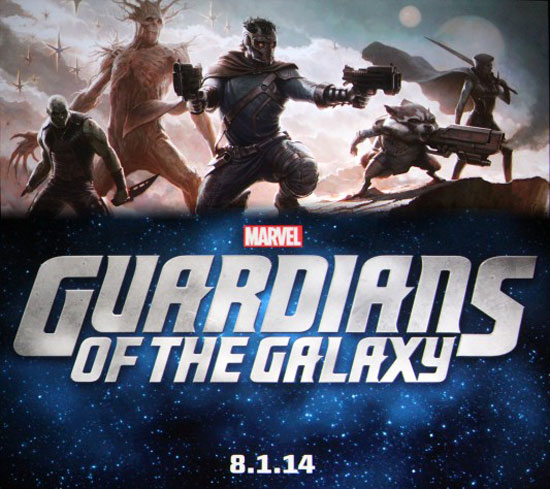It isn’t every day that a three-and-a-half-hour immigrant saga climbs its way to the top of a streaming chart. Yet here we are: Adrien Brody’s The Brutalist—a film that already rewrote history when it earned him his second Academy Award for Best Actor—has turned into a surprise digital powerhouse. According to FlixPatrol, the movie ranked fourth on HBO Max’s worldwide list on September 29, trailing only James Gunn’s Superman, Celine Song’s Materialists, and the box office misfire Wolf Man. Not bad for a 215-minute chamber piece about survival, architecture, and displacement.
Brody has lived with the shadow of The Pianist (2002) for decades, becoming the youngest ever Best Actor winner at 29. Two decades later, The Brutalist reconfirmed his place in cinema’s higher registers. His portrayal of László Tóth, a Holocaust survivor rebuilding his life in postwar America, feels carved out of grief and ambition. Guy Pearce plays the wealthy patron who opens the door to Tóth’s architectural vision, while Felicity Jones, Alessandro Nivola, Isaach de Bankolé, and Joe Alwyn round out a formidable supporting cast.
The numbers matter here. Corbet’s film was produced on a modest budget under $10 million, yet it earned $50 million worldwide—an extraordinary feat for something this uncompromising. By contrast, Sean Baker’s Anora, the Venice rival that snatched Best Picture, took home $57 million. At last year’s Venice Film Festival, The Brutalist was the presumed frontrunner until Anora stole the crown. Awards season saw the Corbet–Brody drama walk away with ten nominations, though only Brody himself carried a statuette home.
Still, the afterlife of a movie tells you more than the red-carpet headlines. Streaming reveals what people actually want to watch in their homes. And right now, they’re willing to sit through 215 minutes of meticulously structured cinema—what Rotten Tomatoes calls “structurally beautiful and suffused with Adrien Brody’s soulful performance.” A 93% approval rating there underscores its critical resilience.
Part of the film’s draw is its immigrant narrative, which lands differently in 2025 than it did even during its festival premiere. With migration once again shaping the cultural imagination, Corbet and co-writer Mona Fastvold have tapped into a historical story that echoes current unease. Their script never shouts politics; it lingers in stone, steel, and silence.
Corbet, once an actor in films like Funny Games and Martha Marcy May Marlene, has grown into a director who thinks in symphonies rather than singles. The Brutalist is his magnum opus so far. And he hasn’t slowed down—his collaboration with Fastvold continued this year with The Testament of Ann Lee, a Venice-premiered period musical led by Amanda Seyfried.
The irony is that audiences who skipped The Brutalist in theaters are now discovering it at home, on their own terms, pausing when needed, sinking into it late at night. A sleeper hit? Maybe. But more importantly, proof that endurance cinema—films that demand time, not just attention—still has a place in a world of short-form distraction.
Why ‘The Brutalist’ Endures on Streaming
- Oscar anchor: Adrien Brody’s second Best Actor win brings a rare prestige to streaming charts.
- Critical muscle: A 93% Rotten Tomatoes score and a Venice competition premiere give it long-term credibility.
- Budget vs. scope: Made for under $10 million, yet mounted with epic ambition, it shocked both critics and industry insiders.
- Immigrant resonance: Its story of postwar reinvention feels newly urgent in today’s climate.
- Streaming surprise: Outperforming cult favorites and major studio titles, it proves audiences still commit to “difficult” cinema.
The Brutalist opened theatrically on December 20, 2024, after premiering at the Venice International Film Festival earlier that year. It is now streaming in select territories on HBO Max.
